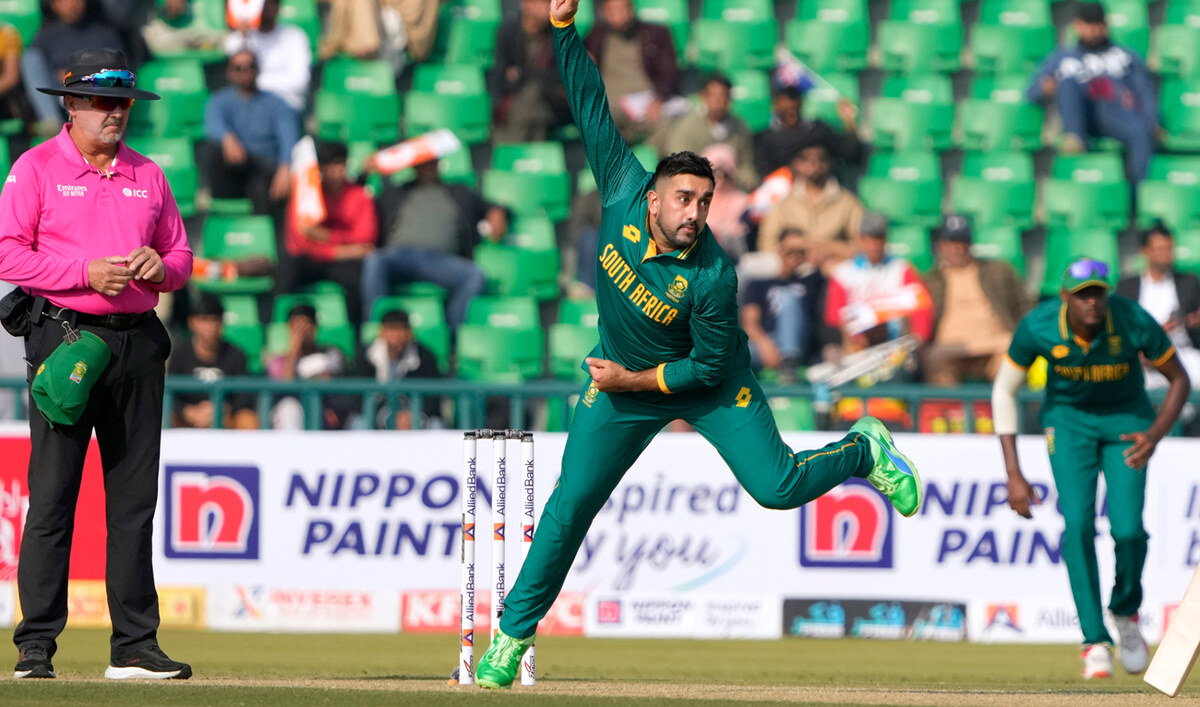ISLAMABAD: An International Monetary Fund (IMF) team is currently visiting Pakistan to conduct a Governance and Corruption Diagnostic Assessment (GCDA), a finance ministry official said on Monday, adding the visit has nothing to do with the country’s judicial system or a review of Pakistan’s ongoing $7 billion IMF program.
The statement came a day after the finance ministry said the three-member IMF mission would conduct the governance and corruption assessment to recommend reforms for transparency, institutional strengthening and sustainable growth in the South Asian country.
Pakistan, currently bolstered by the $7 billion IMF facility that was granted in September, is navigating an economic recovery path. IMF bailouts are critical for Pakistan, which narrowly avoided a sovereign default in June 2023 by clinching a last-gasp, $3 billion IMF loan.
The global lender is set to review Pakistan’s progress on the current $7 billion program by March, with the government and central bank expressing confidence about meeting the targets.
“All rumors suggesting that the IMF team is here to evaluate the judicial process or other related matters are baseless and nothing of that sort is happening during this visit,” Khurram Shehzad, an adviser to Finance Minister Muhammad Aurangzeb, told Arab News.
“The purpose of the IMF team’s visit is to assess the governance structure, which falls under the global lender’s mandate for countries under its program.”
Arab News approached the IMF mission currently visiting Pakistan but did not get a reply by the filing of this story.
Shehzad refuted reports suggesting that the IMF team would meet members of the Judicial Commission of Pakistan next week to discuss the process of judges’ appointment.
The reports emerged amid calls from lawyer bodies and opposition to repeal the 26th constitutional amendment, which empowered parliament to pick the country’s top judge and introduced fundamental changes in the appointment of judges in the superior judiciary.
Shehzad said the IMF team’s visit was not sudden, it was rather planned in July 2024 as part of Pakistan’s previous $3 billion Stand-By Arrangement (SBA).
“This visit is unrelated to the six-month review of the current IMF program, which will be conducted by a separate team,” he said. “That team has not yet arrived in Pakistan and is expected [to arrive] by the end of February or the first week of March.”
He said this was not a new development neither exclusive to Pakistan as similar assessments had been conducted in many other countries.
“They are in Pakistan to conduct a Governance and Corruption Diagnostic Assessment (GCDA), focusing on evaluating corruption vulnerabilities across six core state functions, including fiscal governance, central bank governance and operations, financial sector oversight, market regulation, rule of law, and Anti-Money Laundering and Combating the Financing of Terrorism (AML/CFT),” the finance adviser said.
The IMF has been offering guidance and technical support for a long time, which has contributed to improved governance by enhancing public sector transparency and accountability, according to the official.
“They followed a process in which they assess a country’s governance structure by meeting regulators and institutions to explore ways to improve it in line with global best practices,” he shared.
Following the analysis, Shehzad said, the IMF team will provide GCDAs with recommendations to systematically address the vulnerabilities.
“They will provide a comprehensive overview of the governance structure, highlighting areas for improvement and suggesting methods to bring that improvement and the report on the IMF team’s assessment will be published by the government in July this year,” he added.
The IMF mission will mainly engage with the Finance Division, Federal Board of Revenue, State Bank of Pakistan, Auditor General of Pakistan, Securities & Exchange Commission of Pakistan, Election Commission of Pakistan, and Ministry of Law & Justice, according to Pakistan’s finance ministry.
Traditionally, the IMF’s main focus has been to encourage countries to correct macroeconomic imbalances, reduce inflation, and undertake key trade, exchange and other market reforms needed to improve efficiency and support sustained economic growth.
“While these remain its main focus in all its member countries, however, the IMF has found that a much broader range of institutional reforms is needed if countries are to establish and maintain private sector confidence and thereby lay the basis for sustained growth,” the ministry said in a statement, adding that the IMF identified that promoting good governance in all its aspects, including ensuring the rule of law, improving the efficiency and accountability of the public sector and tackling corruption, are essential elements of a framework within which economies can prosper.
In 1997, the IMF adopted a policy on how to address economic governance, embodied in the Guidance Note “The Role of the IMF in Governance Issues.” To further strengthen the implementation of this policy, the IMF adopted in 2018 a new Framework for Enhanced Engagement on Governance (Governance Policy) that aims to promote more systematic, effective, candid, and evenhanded engagement with member countries regarding governance vulnerabilities, including corruption, that are critical to macroeconomic performance, according to the finance ministry.
Under this policy and framework, the IMF offers to undertake GCDA with member countries to analyze and recommend actions for addressing corruption vulnerabilities and strengthening integrity and governance in IMF member countries. Since 2018, 20 GCDA reports have been finalized, including those for Sri Lanka, Mauritania, Cameroon, Zambia, and Benin and ten diagnostics are ongoing, with several more under IMF consideration.




















